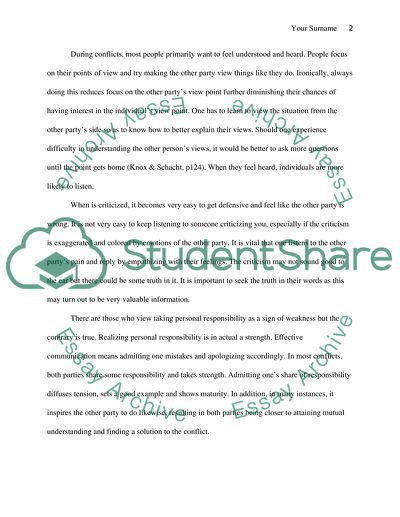Cite this document
(“Resolving Conflicts by Communication Assignment”, n.d.)
Retrieved from https://studentshare.org/psychology/1563014-resolving-conflicts-by-communication
Retrieved from https://studentshare.org/psychology/1563014-resolving-conflicts-by-communication
(Resolving Conflicts by Communication Assignment)
https://studentshare.org/psychology/1563014-resolving-conflicts-by-communication.
https://studentshare.org/psychology/1563014-resolving-conflicts-by-communication.
“Resolving Conflicts by Communication Assignment”, n.d. https://studentshare.org/psychology/1563014-resolving-conflicts-by-communication.


